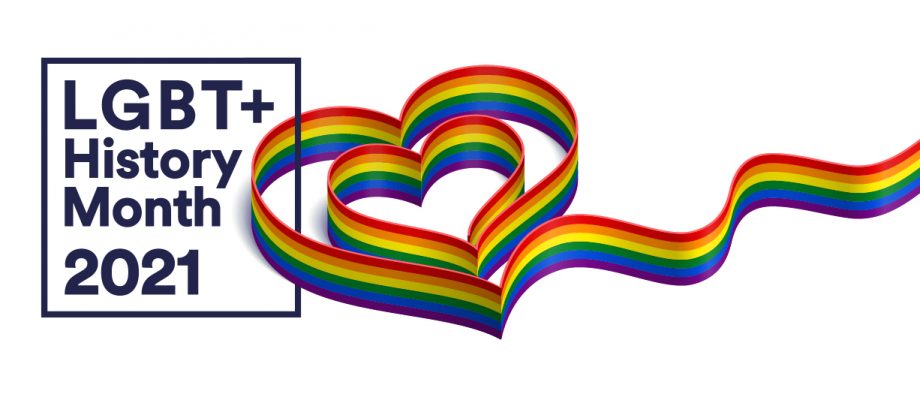February 5, 2021, by School of Medicine
50 at 50: LGBT+ History Month
This latest instalment in a series of blogs to mark the 50/30 celebrations of medicine and nursing at Nottingham coincides with LGBT+ History month, serendipity of which I will take full advantage.
The Medical School was opened just three years after the decriminalisation of homosexuality in the UK. In the intervening decades, there is no doubt that great strides have been made in pursuit of equality for LGBT+ people in this country, although homophobia and transphobia continue to cause immense harm. Whilst sexual orientation and gender are now protected characteristics in the UK where the LGBT+ community is afforded legal protections, we must remember that State-sanctioned discrimination and sometimes brutal oppression remain the norm in many nations of the world. All the more reason to celebrate LGBT+ history and the people who, individually and collectively, have made such amazing contributions in all walks of life across the globe, not least in medicine and healthcare.
As a member of the university board responsible for organising this month’s celebrations, I have been inspired by the passion and creativity of students and staff in devising such an innovative programme of events, both institution-wide and at faculty level. Please do view the programme for yourself.
Within the Faculty of Medicine and Health Sciences, Ella Guerin and I have organised a series of events which celebrate the contributions of LGBT+ people in medicine and healthcare. In the coming weeks, Ella will be delivering a lecture on LGBT+ health inequalities and will be in conversation with David Charnock, SoHS Director of EDI, about gendered language. John McLuskey will also be giving a lecture, on HIV and the LGBT+ community.
We are currently compiling a short film celebrating our faculty LGBT+ staff and alumni, entitled Pride in Healthcare and are immensely grateful to all contributors who took the time to record their experiences of being out as clinicians, especially during such an incredibly challenging period for our NHS workforce. Their reflections on life as LGBT+ doctors, nurses and allied health professionals are inspiring. If you would like to contribute your own experiences to the film, it would be great to hear from you so do get in touch.
The film will be augmented by a twittering of national and international LGBT+ role models in medicine and healthcare, past and present, so do look out for the daily tweeting of names throughout February to find out more about their individual contributions. From early 20th century pioneers in women’s health and leading activists in the fight against AIDS, to cutting-edge cultural analysts of biomedicine, editors of flagship scientific journals and Royal College presidents. They are all in the mix.
Nia Wyn Jones, SoM Director of EDI , and Rowland Seymour have initiated a webinar – People like me – to give LGBT+ researchers the opportunity to talk about their experiences in academia: what improvements have been made and what still needs to be done? I am looking forward to joining the panel discussion and hope that many colleagues will be able to attend and share their own perspectives.
In addition, an online poster gallery of LGBT+ healthcare-related research led by students and staff at Nottingham will be launched during the month. It includes the work of PhD scholars Nat Thorne (exploring gender identities) and Jess Williams (exploring self-harm and suicide in LGBTQ+ youth), both of whom are members of the research team led at Nottingham by Jon Arcelus, an international expert on transgender health. The plan is to retain the gallery and populate its virtual walls with more and more posters to showcase the excellent scholarship in LGBT+ healthcare at the university.
My own research interests centre around curriculum design and I have lately commenced a study on how best to incorporate LGBT+ health in the undergraduate medical curriculum, reviewing evidence on effective multimodal integration of health topics through the use of didactic instruction, case-based learning and clinical rotations. A well-developed body of literature demonstrates that LGBT+ individuals experience poorer health outcomes and report worse health care experiences than their straight/cisgender counterparts. All medical schools must prepare and educate future physicians to treat the unique healthcare requirements of this population while providing culturally-competent care. I will be contributing a lecture on this subject as part of the faculty’s LGBT+ history month celebrations which I hope colleagues will find thought-provoking.
Whilst it continues to be a very testing time for everyone in the faculty and wider university, perhaps especially for our colleagues with clinical responsibilities, I do hope that you are able to engage with some of the events outlined here. Many of the lectures will be pre-recorded with attached Q+A forums to make them as accessible as possible in busy schedules. The 50/30 blogs are a wonderful opportunity to celebrate the diverse life and work of our university community. I hope this rainbow-tinged contribution is a worthwhile addition.
By Dr Stevie Agius, Assistant Professor in Medical Education
No comments yet, fill out a comment to be the first


Leave a Reply